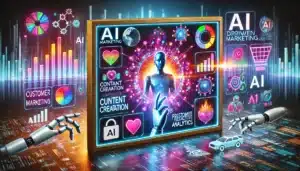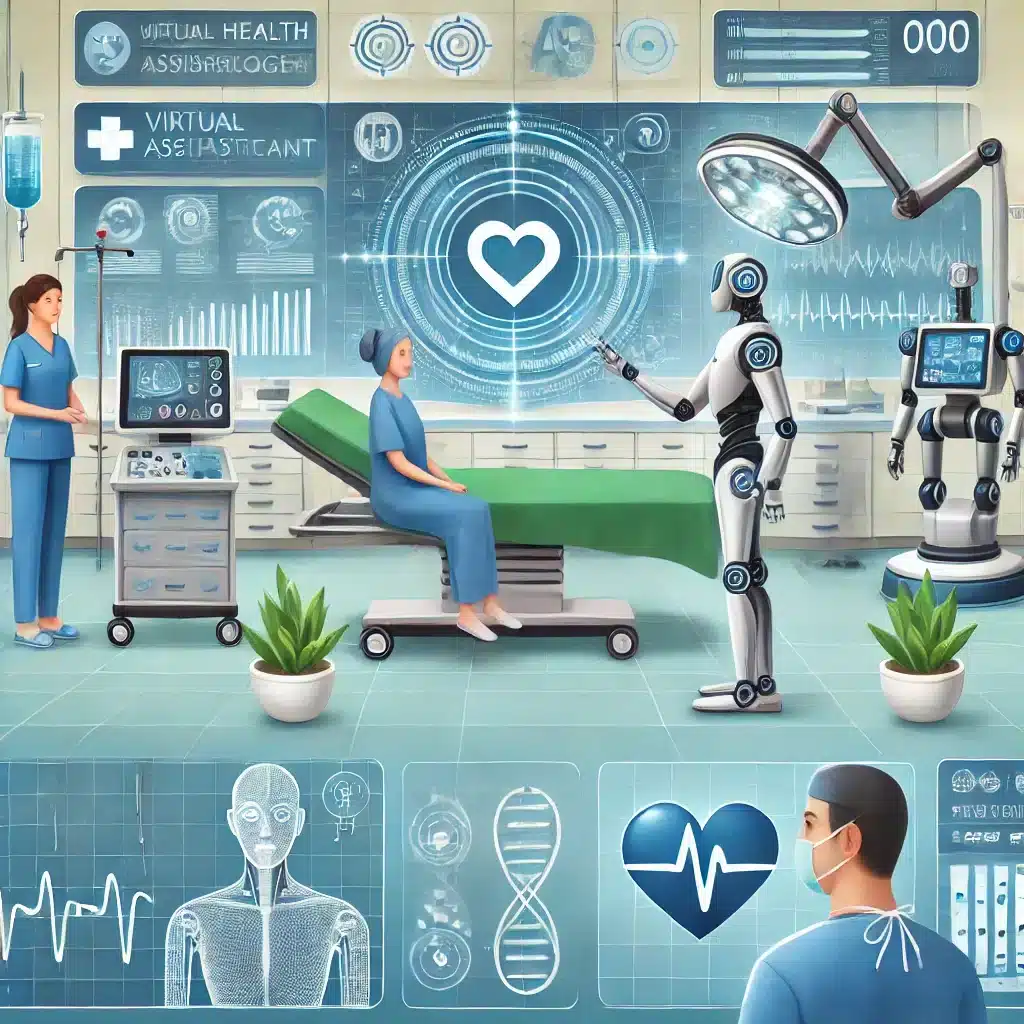In 2025, AI advancements promise to revolutionize marketing, reshaping strategies and enhancing customer engagement. Marketers increasingly embrace AI-integrated strategies to enhance execution, streamline processes, and deliver highly personalized client experiences. This deep dive explores the key AI marketing trends for 2025, how generative AI is shifting content creation, and how predictive analytics are transforming marketer workflows.
What are the Key AI Marketing Trends to Expect in 2025?
How is AI transforming digital marketing strategies?
AI is fundamentally reshaping digital marketing strategies by empowering marketers to make better decisions based on massive volumes of data. Marketing leaders can analyze customer data to uncover patterns that might go unnoticed with manual methods. This manifests in improved customer segmentation, enhanced targeting for marketing campaigns, and greater content personalization. By 2025, AI will enable marketers to deliver perfectly timed, personalized messages to the right audience.
Top 5 AI Marketing Trends to Watch in 2025
How will marketers adapt to these upcoming trends?
The need for marketers is to stay vigilant and flexible within the rapid world of AI in marketing-continuous learning for marketers. This includes investing in AI tools and training programs that enhance their skills in the use of AI-driven technologies. Secondly, marketers must work closely with data scientists and AI experts to ensure they leverage AI effectively. Marketers must stay abreast of the most recent developments and integrate them into their marketing operations to position themselves for success in the AI-driven future of marketing.

How is Generative AI Changing Content Creation in Marketing?
What role does generative AI play in automating content creation?
Generative AI uses algorithms to create text, images, and videos based on input data. OpenAI’s ChatGPT helps marketers quickly create blog posts, emails, and social media content, saving time for strategy. This ability to automate large-scale content production empowers brands to maintain consistent engagement with their audience.
How can marketers leverage AI tools for personalized content?
AI tools analyze customer preferences and behaviors to deliver personalized content. By processing vast amounts of data, these tools help marketers create targeted campaigns that resonate deeply with individual consumers. For instance, dynamic content can be adjusted in real time to match consumer interactions, enhancing the relevance of marketing efforts.
What are the implications of generative AI on customer engagement?
Generative AI enables marketers to maintain consistent and meaningful communication with their audience. Personalized interactions foster deeper connections, resulting in increased engagement and loyalty. Generative AI will revolutionize customer engagement with personalized videos and immersive, chatbot-driven conversations.
What Impact Will Predictive Analytics Have on Marketing Strategies in 2025?
How can predictive analytics enhance customer segmentation?
Predictive analytics can significantly do well to customer segmentation in more ways than one as analyzing historical data for extracting patterns and predicting future behavior. More to that, using AI in predictive analytics can help the marketer to better segment the audience who may then be segmented for targeting specific groups of people with tailored marketing campaigns. This fine-tuned strategy allows brands to concentrate their efforts on high-value customers, thus making their marketing more efficient and, in turn, yielding better ROI. In 2025, predictive analytics will be the cornerstone of marketing strategies as it would help capture and retain customer interest in a competitive landscape.
What are the benefits of using AI for real-time analytics?
The benefits of using AI for real-time analytics are numerous. This means that AI tools can process and analyze data in real time. It means that the marketers will be able to gain immediate insight into behaviors and campaign performance. Marketers can make well-informed decisions based on agility, being able to quickly adjust strategies for the highest possible returns. Real-time analytics help identify new trends and make proactive responses, making marketers better at interacting with customers. As AI continues to advance, the reliance on real-time analytics will become a standard practice in marketing operations, driving greater success in campaigns.
How will predictive analytics refine the customer experience?
Predictive analytics will refine the customer experience by enabling marketers to anticipate customer needs and preferences. AI analyzes past behaviors to help marketers craft personalized experiences that deeply resonate with individual consumers, boosting engagement effectively. This personalization enables relevant product recommendations, targeted promotions, and timely communications, enhancing every aspect of the customer journey significantly. By 2025, predictive analytics will become essential, driving successful marketing strategies that prioritize and improve the overall customer experience.
How are AI Tools Augmenting Marketer Workflows?
What are the latest AI tools available for marketers in 2025?
The marketing landscape in 2025 will feature cutting-edge AI tools designed to enhance productivity. AI-driven platforms will offer integrated solutions, including email automation, social media management, and performance tracking. Advanced analytics tools will provide actionable insights, enabling marketers to refine their strategies continually.
How can AI tools automate repetitive marketing tasks?
AI tools can automate repetitive marketing tasks by performing routine functions such as data entry, email scheduling, and social media posting. With the automation of these tasks, marketers can save very precious time and resources to focus on high-level strategic initiatives. For instance, AI-powered chatbots can manage customer inquiries 24/7 with an instant response, freeing up human resources for more complex interactions with a customer. As AI improves, automation of repetitive tasks will become more effective, hence making marketing workflow and freeing marketers to work on more productive activities.
In what ways can AI enhance collaboration among marketing teams?
AI can enhance collaboration among marketing teams because it provides such tools that enhance communication and project management. AI-driven platforms can also streamline workflows through the sharing of insights, tracking of project progress, and real-time collaboration on content creation among team members. AI can also analyze the performance of teams and provide recommendations for improving collaboration to ensure that projects are completed efficiently and effectively. With more and more reliance from marketing teams on AI, better collaboration will lead to better results and, in turn, a far more cohesive marketing strategy overall.
What Is the Future of AI in Marketing Beyond 2025?
What predictions for 2025 should marketers be aware of?
Looking ahead to 2025, there are a few predictions that marketers should keep in mind. First, AI integration in marketing will become more pervasive and aligned with ethics towards transparency and data protection. Generative AI will empower marketers to craft engaging, personalized content, enhancing audience connection and boosting campaign success.
Predictive analytics will be used to enhance marketing planning and strategy, so that the brand can now know its customers much better and further provide them with products according to their needs. Marketers who are vigilant and fluid in these anticipations will be in a better position to navigate the flux that marketing is coming through.
How will AI continue to transform marketing strategies beyond 2025?
Beyond 2025, AI will transform marketing strategies in terms of innovation and efficiency across different channels. The more advanced AI technologies will become, the more marketers will have at their disposal, providing them with powerful tools that enable them to analyze customer data with unprecedented accuracy, create highly personalized experiences, and optimize their campaigns in real time. In addition, with the advancement of AI in the emerging fields of augmented and virtual reality, marketers will now open new opportunities to engage their customers and their brand. Ongoing evolution of AI fundamentally changes the nature of marketing approach to make strategies much more effective and impactful.
What trends should marketers monitor to stay ahead in the AI landscape?
Conclusion
The transformative power of AI in marketing is undeniable. From generative AI revolutionizing content creation to predictive analytics refining customer experiences, 2025 will be a year of unprecedented innovation. Embracing AI-driven strategies enables marketers to deliver personalized, impactful campaigns, gaining a competitive edge and audience resonance. By staying informed, agile, and ethical, marketers can navigate the challenges and opportunities of an AI-powered future with confidence.



